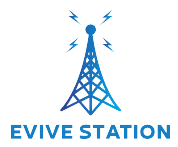Preventive maintenance is crucial for ensuring the efficient operation, longevity, and reliability of HVAC (Heating, Ventilation, and Air Conditioning) systems and water filtration systems. Read More
1. HVAC System Maintenance
- Regular Inspections: Conduct routine inspections of HVAC equipment, including air handlers, chillers, boilers, and ductwork. Check for leaks, corrosion, wear and tear, and ensure proper functioning of controls and sensors.
- Filter Replacement: Replace air filters regularly to maintain indoor air quality and optimize system efficiency. Dirty filters restrict airflow, leading to increased energy consumption and potential equipment malfunctions.
- Cleaning Coils and Ducts: Clean evaporator and condenser coils, as well as ductwork, to remove dirt, debris, and microbial growth. Clean coils enhance heat transfer efficiency, while clean ducts improve air distribution and reduce allergens.
- Lubrication and Belt Tension: Lubricate moving parts such as bearings and motors to reduce friction and wear. Check belt tension and alignment in belt-driven systems to prevent slippage and ensure efficient operation.
- Calibration of Controls: Verify and calibrate thermostats, sensors, and control systems to maintain accurate temperature and humidity levels. Proper calibration improves comfort conditions and energy efficiency.
2. Water Filtration System Maintenance
- Filter Replacement: Replace filters in water filtration systems according to manufacturer recommendations or based on water quality tests. Clogged filters reduce water flow and efficiency, leading to increased energy consumption.
- Chemical Treatment: Implement water treatment programs to prevent scale buildup, corrosion, and microbial growth in filtration systems. Monitor water quality parameters and adjust chemical dosing as needed to maintain system integrity.
- Backflushing and Flushing: Periodically backflush or flush water filtration systems to remove sediment, particulates, and contaminants. Flushing prevents clogging and ensures consistent water quality and flow rates.
- Inspection of Valves and Pumps: Inspect valves, pumps, and fittings for leaks, corrosion, or mechanical issues. Repair or replace faulty components to prevent system failures and ensure reliable operation.
3. Schedule and Documentation
- Develop a Maintenance Schedule: Create a comprehensive maintenance schedule that includes regular tasks such as filter changes, coil cleaning, lubrication, and inspections. Schedule seasonal maintenance for heating and cooling transitions.
- Use Maintenance Logs: Maintain detailed records of maintenance activities, inspections, repairs, and equipment performance. Documentation helps track maintenance history, identify trends, and plan future maintenance tasks.
4. Training and Team Collaboration
- Training Programs: Provide training for maintenance staff on proper HVAC and water filtration system maintenance techniques, safety protocols, and equipment operation. Well-trained personnel ensure effective preventive maintenance practices.
- Collaboration with Contractors: Partner with qualified HVAC contractors and water treatment specialists for specialized maintenance tasks, system assessments, and emergency repairs. Collaborative efforts enhance system reliability and expertise.
5. Energy Efficiency Audits and Upgrades
- Energy Audits: Conduct periodic energy audits to identify opportunities for improving HVAC and water filtration system efficiency. Implement energy-saving measures such as variable speed drives, energy-efficient components, and building automation systems.
- System Upgrades: Consider upgrading outdated HVAC equipment and water filtration technologies to modern, energy-efficient models. Upgrades reduce energy consumption, improve system performance, and lower operational costs over time.
Conclusion
Effective preventive maintenance strategies for HVAC and water filtration systems are essential for optimizing performance, reducing operational costs, and ensuring occupant comfort and safety. By implementing regular inspections, timely filter replacements, proper cleaning and maintenance procedures, and collaborative efforts with trained personnel and contractors, building owners can enhance system reliability and longevity. Embrace proactive maintenance practices to mitigate risks, maximize efficiency, and maintain sustainable operations of HVAC and water filtration systems in commercial and residential buildings alike.
